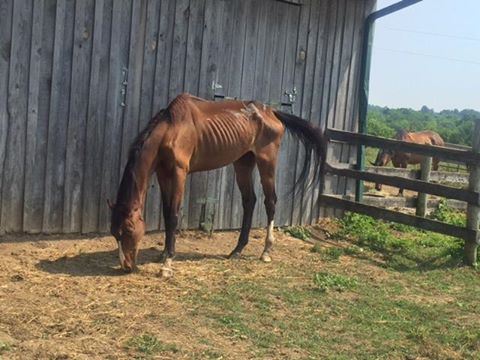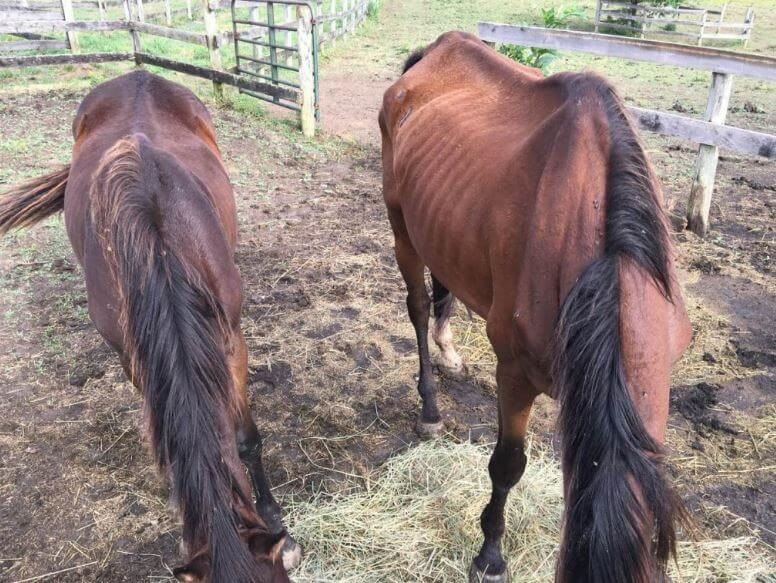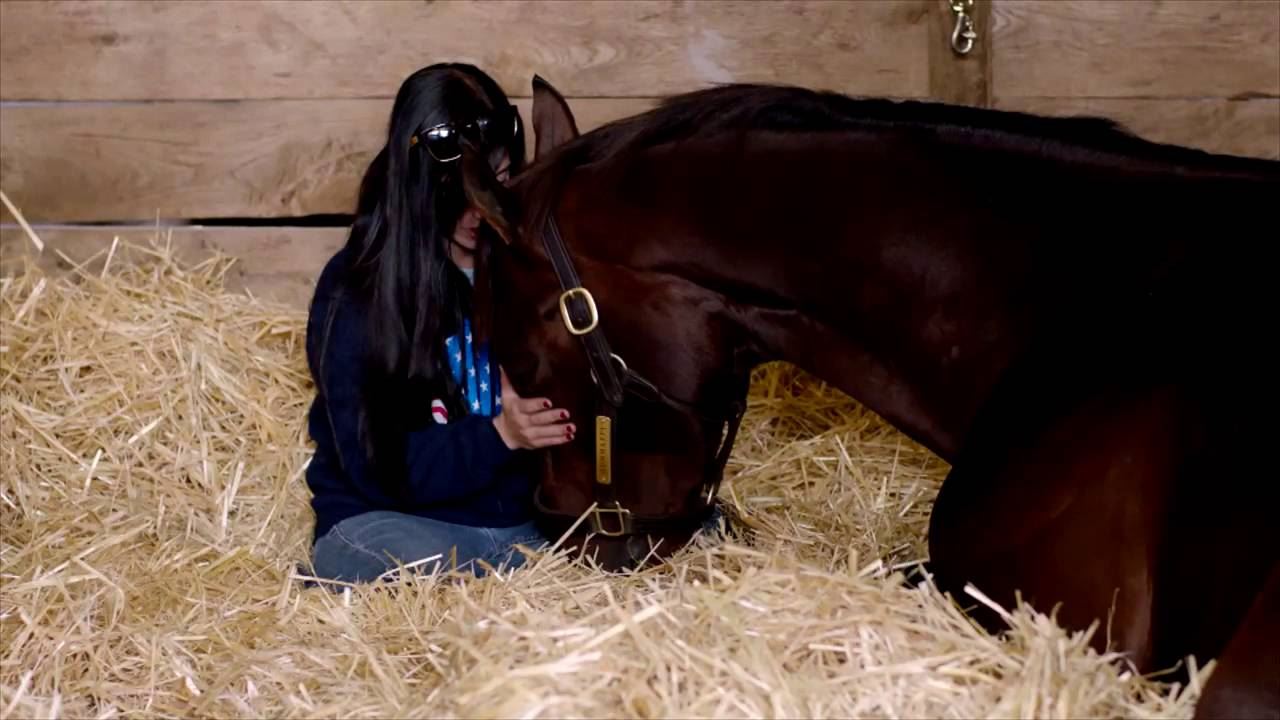By Sarah E Coleman
By now, everyone in the state of Kentucky has heard of the equine neglect case involving Chuck Borell and his daughter Maria, a Breeder’s Cup-winning trainer, who, as of early August, had a warrant out for her arrest. With 43 counts of second-degree animal cruelty against her, she has not yet been served, as she has not returned to Kentucky.
There were 43 horses involved in the case on the 121-acre farm in Mercer County; 28 of the horses in the best physical shape were left on the farm. Eight horses were moved to the Thoroughbred Retirement Foundation’s Blackburn Correctional Facility and several others that were not Thoroughbreds were taken in by the Kentucky Horse Park (but are not on Park grounds). Old Friends Thoroughbred Retirement Farms took in two Thoroughbreds.
Though the horses are now being taken care of, those passionate about equine welfare felt that it took much too long for the horse’s health to become a priority. Adding to the confusion, it was clear before the horses were moved to the Mercer County farm that they were being neglected—so how did 43 horses slip through the cracks?

Why Did it Take So Long to get Anything Done?
While many people were unhappy with the how long it took for the horses to receive care, the state had to play by the rules—which, like most animal welfare laws in the state, seem to be subpar.
Trainer Ken Summerville, who used to keep horses with Borell before losing them in a legal dispute, stopped at the farm in Mercer County in hopes of seeing his old horses. What he found was overwhelming; the horses were in poor condition and a volunteer at the farm let him know that neither Borell had been to the farm in weeks.
Summerville alerted the local sheriff, Ernie Kelty, and waiting for the sheriff to begin to investigate the case. That step alone took weeks, though they did provide the horses on the farm with a limited supply of hay. Once Summerville called again, saying that the horses were now in dire straits, and when the press got ahold of the story, things began to move.
The state veterinarian in Kentucky, Rusty Ford, became the point person in the case. The first that had to be tackled before anything else could be done was discovering just who WERE the horses on the farm? As they were having no luck reaching either Borell, the onus fell on the state to determine who each horse was who was on the farm.
Thankfully, The Jockey Club stepped in to help determine who the Thoroughbreds were. DNA samples were taken for every horse on the Mercer County farm and The Jockey Club has worked diligently on identifying the horses. Work was also done to not only identify the horses, but their owners, as well.
In some cases, however, the horses had not been registered, so there was no way to locate an owner. So what happens to these horses?

What Happens to These Horses?
Previously, in Kentucky, any horse that was a “stray” had to be held for 90 days before anything could be done with it (given away, sold, etc). This means that if a horse was abandoned at a boarding barn, the barn owner had to feed and care for the horse for at least 90 days before he or she was allowed to take possession of the animal; from there they could do with it as they wished.
Thankfully, in 2015, this stray hold period was cut from 90 days to 15 days—a huge boost for those working to save horses from dangerous situations. This law, while helpful for potentially cash-strapped communities without the resources to care for stray horses, also is helpful to farm owners who must care for a horse for a shorter period of time before trying to recoup some of their losses.
The horses involved in the Borell case are now listed on the Kentucky Department of Agriculture’s website on the “Stray or Abandoned Horses” page. This page is searchable by both county and breed; every effort is being made to locate the owners of the horses that are not registered.

Why Didn't More Thoroughbred Entities Step Up?
While it would seem like a logical choice for Thoroughbred aftercare organizations to rally around the horses abandoned on the Mercer County farm, it’s not that simple. Very few Thoroughbred Aftercare Alliance-(TAA) accredited organizations could provide shelter to the Mercer County horses because of the way the organizations operate: To take in a horse, the horse must transfer ownership to the accredited organization; the organizations are not entities that provide foster care. Transfer of ownership was not an option in the Borell case as it was still under investigation; horses rightfully owned by someone could not be given away without the proper protocol having been followed.
But the equine industry didn’t let the case go unnoticed. They quickly rallied, with multiple veterinarians and shipping companies offering aid; donations rolled in to local feed companies and volunteers willingly gave up hours upon hours to care for the horses at the farm.
So What Happens Now?
While the horses in this care are gaining weight and being cared for, their owners are still sought. While things seemed to move slowly in this case, it has shed light on some of the inadequacies in the equine welfare system, and things are in the works to change them and strengthen equine welfare laws.
The Kentucky Equine Health and Welfare Council unanimously approved a motion to examine changes to animal welfare laws. The council is chaired by Ford, who has first-hand knowledge of how poorly the system has worked in this case in particular. It is hoped that Kentucky laws will be clarified so that officials might take control of abandoned horses more easily. As a comparison, law enforcement officials are able to more-easily take possession of smaller animals like dogs and cats.
Also suggested for additional changes are increased sanctions for those who have committed crimes as well as a possible emergency fund safety net for horses that are in dire situations.
